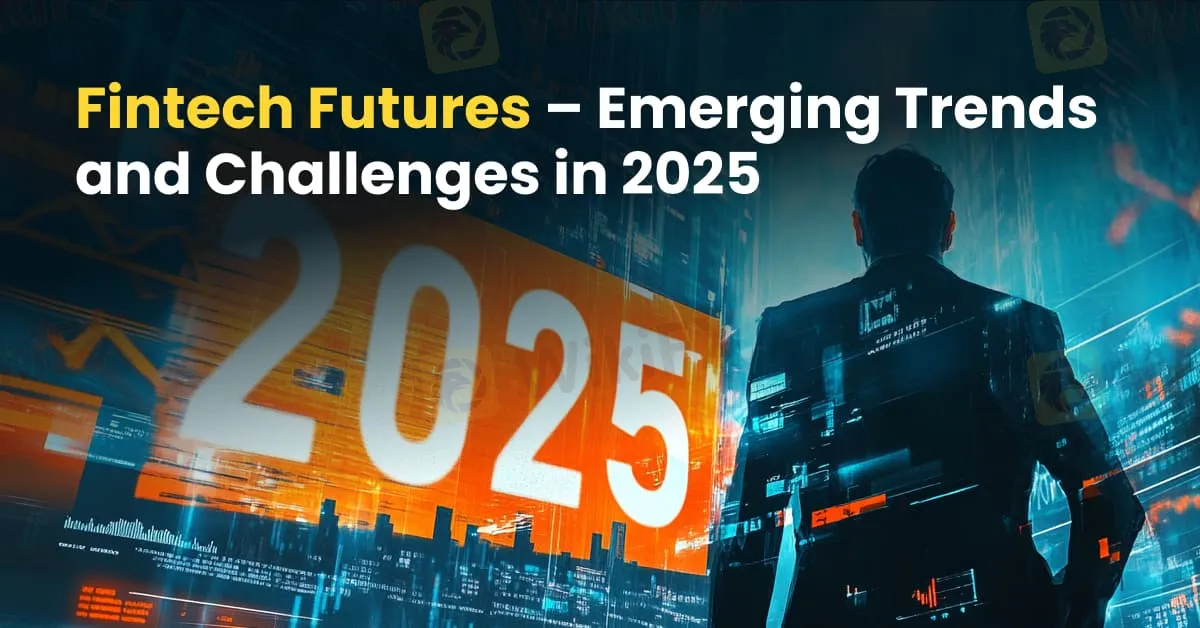简体中文
繁體中文
English
Pусский
日本語
ภาษาไทย
Tiếng Việt
Bahasa Indonesia
Español
हिन्दी
Filippiiniläinen
Français
Deutsch
Português
Türkçe
한국어
العربية
Fintech Futures – Emerging Trends and Challenges in 2025
Abstract:As the global economy recovers from recent upheavals and rapidly evolving technology underpins the digital transformation, the fintech landscape is poised for significant change. In 2025, fintech companies will capitalize on new technologies like blockchain, artificial intelligence (AI), and open finance while navigating a stricter regulatory environment. This article explores emerging trends driving fintech innovation, examines the challenges firms must overcome, and offers insights into how companies can remain competitive in an increasingly crowded market.

Introduction
As the global economy recovers from recent upheavals and rapidly evolving technology underpins the digital transformation, the fintech landscape is poised for significant change. In 2025, fintech companies will capitalize on new technologies like blockchain, artificial intelligence (AI), and open finance while navigating a stricter regulatory environment. This article explores emerging trends driving fintech innovation, examines the challenges firms must overcome, and offers insights into how companies can remain competitive in an increasingly crowded market.
- Blockchain Integration and Digital Assets
- Mainstream Adoption: Originally associated primarily with cryptocurrencies, blockchain technology is now being leveraged to improve transaction security, enable faster cross-border payments, and enhance transparency in financial processes.
- Smart Contracts: The integration of smart contracts streamlines activities like Know-Your-Customer (KYC) procedures and fraud prevention, reducing administrative overhead.
- Digital Asset Evolution: Alongside blockchain, digital assets and tokenization are reshaping capital allocation and investment strategies. As more firms embrace these technologies, digital assets are set to become a key revenue stream.
- Artificial Intelligence and Machine Learning
- Fraud Prevention and Personalization: AI-powered tools are increasingly deployed to detect unusual patterns, prevent fraud in real time, and deliver personalized financial advice. Large-scale investments in AI infrastructure are transforming risk management and customer service.
- Generative AI Growth: With growing interest in generative AI, fintech companies are exploring new applications from innovative content creation to automated decision making. However, increased use comes with rising regulatory and compliance challenges.
- The Evolution of Open Finance
- Expanding Data Sharing: Following in the footsteps of open banking, open finance is broadening the scope of data exchange beyond traditional banking services to cover insurance, pensions, and investment products.
- Enhanced Customer Control: Regulatory frameworks in the EU and the UK are evolving to provide consumers with greater control over their financial data while ensuring robust data security.
- Industry Collaboration: The drive toward interoperability, as seen in initiatives like the UKs open finance roadmap, supports innovation by enabling fintech firms to create richer, user-friendly digital ecosystems.
Conclusion
The fintech industry in 2025 stands at a pivotal moment. By harnessing technologies like blockchain, AI, and open finance, fintech companies can create more efficient, secure, and inclusive financial systems. However, these opportunities come with their own set of challenges, from increased regulatory demands to the need for robust cybersecurity and talent acquisition. Firms that can successfully innovate while maintaining compliance and customer trust will shape the future of finance in a post-pandemic, digital-first global economy.

Disclaimer:
The views in this article only represent the author's personal views, and do not constitute investment advice on this platform. This platform does not guarantee the accuracy, completeness and timeliness of the information in the article, and will not be liable for any loss caused by the use of or reliance on the information in the article.
Read more

Oil Price Breakout Incoming? Investors Should Stay Alert
Oil prices are hovering around a critical level, with potential yet to be fully unleashed. Investors must prepare for sudden changes.

Top Forex Trading Strategies Every Trader Must Implement
Successfully navigating the fluctuating forex market landscape requires more than having a high-risk appetite. It requires effective strategies that assure you gains even during the market fall. Let’s go through the strategies many traders implement to gain.

TriumphFX Forex Scam Costs Malaysian Victim RM120,000
“That money was meant for my wedding and to buy a house. Now, it's all gone…”

SkyLine Guide 2025 Malaysia: 100 Esteemed Judges Successfully Assembled
WikiFX SkyLine Guide has always been committed to deeply integrating excellence standards with localization concepts in the forex industry. SkyLine Guide 2025 Malaysia, meticulously curated by a team of local experts, showcases the most reliable, professional, and client-centric brokers across the country, promoting the healthy development of the forex industry. It aims to provide Malaysian investors with an authoritative and trustworthy forex broker recommendation list.
WikiFX Broker
Latest News
How much money will you earn by investing in Vantage Broker?
IronFX vs Exness Review 2025: Comprehensive Broker Comparison
Fraudsters Are Targeting Interactive Brokers' Users with Lookalike Emails
Interactive Brokers: Global Office Visits and Licensing Details
Top Tips to Choose the Best Forex Broker in 2025
SEBI Notifies New F&O Rules for Investors - New Derivative Trading Limits & More Amendments
U.S. Jobs Data Released: A Potential Boost for Gold Prices
SkyLine Guide 2025 Malaysia: 100 Esteemed Judges Successfully Assembled
Everything you need to know about ADSS
Vantage Markets Review 2025: Trusted Forex and CFD Trading Since 2009
Currency Calculator


